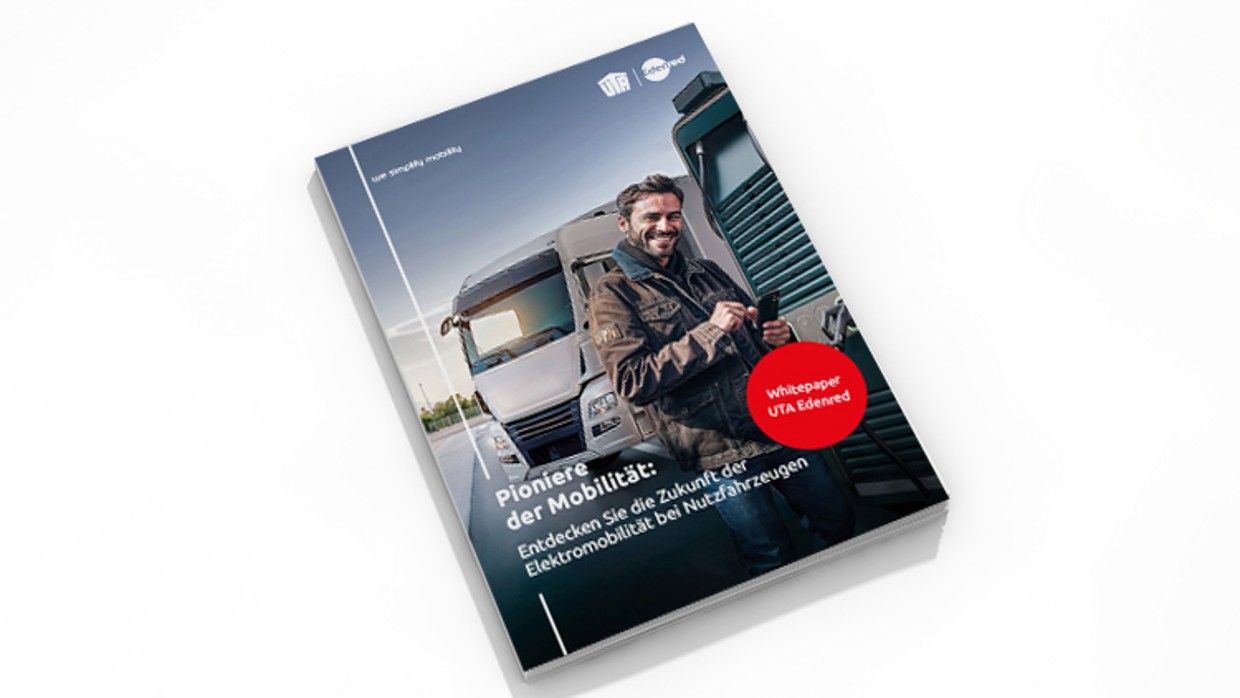News
News
Daring to go electric
In a new whitepaper, UTA Edenred – one of the leading mobility service providers in Europe – describes electromobility as the key to sustainable and economical transport. There are good reasons for this: After all, road transport is one of the main producers of greenhouse gas emissions in the majority of EU countries. In 2022, emissions of more than 750 million tonnes were generated here. And in Germany alone, according to the Federal Environment Agency, the transport sector was responsible for around 146 million tonnes of greenhouse gases (calculated as CO2 equivalents; abbreviated to CO2 eq.) in 2023, accounting for around 22 per cent of total German greenhouse gas emissions.
And although trucks and buses only make up two per cent of the vehicles on Europe’s roads, they are the second largest source of CO2 emissions in the transport sector, accounting for 25 per cent.
The electrification of heavy commercial vehicles could therefore provide an effective lever for achieving greater sustainability in the transport sector. As UTA Edenred emphasises, a study by the International Council on Clean Transportation (ICCT) found that battery-powered trucks emit at least 63 per cent less greenhouse gases over their lifetime than trucks powered by conventional diesel.
And a market study by UTA Edenred shows that environmental friendliness is indeed by far the most important motivation for fleet managers to electrify their fleets.
The purchase price of an electric truck is still an enormous challenge for a transport and logistics company. As a total-cost-of-ownership analysis shows, the operation of such an electric vehicle can still pay off economically. This is because the energy and maintenance costs are significantly lower. According to UTA Edenred, they amount to an average of 0.057 euros per kilometre. For a diesel truck it is 0.105 euros per kilometre. This difference is mainly due to the simpler technical design of electric motors, which have fewer moving parts than conventional combustion engine drives.
In addition, there are different grants, subsidies and tax benefits depending on the country, which can make the purchase of electric vehicles more attractive. For example, emission-free vehicles such as electric or hydrogen trucks and vehicles with a hydrogen fuel cell are exempt from tolls in Germany until the end of 2025. However, the logistics industry complains that this short period does not offer sufficient security for long-term investment planning in alternative drive systems.



